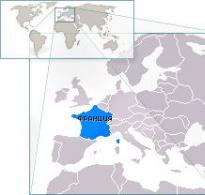"The Tale of Captain Kopeikin": Folklore Sources and Meaning. The meaning of "The Tale of Captain Kopeikin" in N. V. Gogol's poem "Dead Souls" Captain Kopeikin in dead souls read
In this story, Gogol tells about the events of 1812. The main character is Captain Kopeikin, a former soldier of the Russian army. During the war, he lost an arm and a leg. Having become disabled, he could not find any work in order to feed at least himself. And then he decides to go to St. Petersburg to beg for solid compensation for the loss of his arm in the war.
Our experts can check your essay according to the USE criteria
Site experts Kritika24.ru
Teachers of leading schools and current experts of the Ministry of Education of the Russian Federation.
He goes to various officials, but no one really can help him. People advise him to wait until the sovereign returns, who went to receive glory after the great battle. But Kopeikin was not able to wait any longer, since he had no money left at all to exist. And then Kopeikin decides to get money without anyone's help.
A couple of months later, a group of robbers showed up in Ryazan. Who was the leader? It is not difficult to guess that it was Kopeikin himself.
At this point, Gogol does not condemn the main character at all. On the contrary, it even justifies it. After all, only his hopeless situation could make a person go on a robbery.
Updated: 2017-06-16
Attention!
Thank you for your attention.
If you notice an error or typo, highlight the text and press Ctrl+Enter.
Thus, you will provide invaluable benefit to the project and other readers.
Gogol's poem "Dead Souls" tells about Chichikov's scam, about petty intrigues and sweet lies of this low man. And suddenly the reader comes to The Tale of Captain Kopeikin. It would seem that this story has nothing to do with the action of the poem. And the action of the poem takes place in the provincial town of NN and in the nearby landowners' estates, and the action of The Tale of Captain Kopeikin takes place in St. Petersburg. But there is definitely a connection.
This story is told to officials by the postmaster at the moment when they decide who Chichikov is. He tells with a clear desire to impress on them that Chichikov is Kopeikin. This is the most visible thread connecting The Tale of Captain Kopeikin with the action of the poem. If you remove this story from the work, it would seem that nothing will change. But Gogol did not in vain introduce this story into his poem.
The reader is momentarily distracted from the narrative, and one impression is replaced by another. Gogol breaks the connection of events, the story of the purchase and sale of "dead souls" is broken, but at the end of the story you understand that the writer continued the main theme of the poem about the frozen, dead human soul. At this point, the theme became clearer and brighter.
Captain Kopeikin was a participant in the war of 1812, lost an arm and a leg in that war, arrived in St. Petersburg to beg for a pension for himself. This is what Gogol's Petersburg is like: “Well, you can imagine: some kind of, that is, Captain Kopeikin suddenly found himself in a capital that is like, so to speak, not in the world! Suddenly there is a light in front of him, so to speak, a certain field of life, a fabulous Scheherazade ... bridges hang there like a devil, you can imagine, without any, that is, touch, - in a word, Semiramis ... ". He got a job in an inexpensive tavern, since he had very little money to live on and decided that he would go to a noble nobleman for a reception. Here Gogol, with his characteristic brilliance, tells and in a grotesque manner ridicules the luxury and wealth of the highest ranks: their hands, but then he already decided to grab onto it ... ”or else:“ a hut, you understand, a peasant: glass in the windows, one and a half full mirrors, so that vases and everything that is in the rooms seem to be outside, precious marbles on the walls! ah, metal haberdashery ... ".
It was there that Kopeikin got an appointment and even received hope for a solution to his case: “... without a doubt, you will be rewarded properly; for there has not yet been an example that in Russia a person who brought, relatively so to speak, services to the fatherland, was left without contempt! But with each visit, his hope dwindled, until he himself was expelled from the city. Kopeikin, an invalid of the war, beats the threshold of a high commission, asking for a pension, and never receives it. The captain encountered the dull indifference of officials, indifference to his fate. These "dead souls" do not want to see in him a person who suffered in the war, patient, unassuming and honest: "It is impossible, does not accept, come tomorrow!" Driven to despair, Kopeikin decides: “When the general says that I should look for the means to help myself ... well, I will find the means!” Less than two months later, a gang of robbers appeared in the Ryazan forests "and the ataman of this gang was, my sir, no one else" - it is easy to guess that this is Captain Kopeikin. With the help of this story, Gogol, as through a magnifying glass, showed us the cruelty and callousness of those in power, the unwillingness of the latter to see the pain and sorrows of the common people, revealed to us the rotten essence of the bureaucracy.
Bibliography
For the preparation of this work, materials from the site http://sochok.by.ru/
Typical features and, albeit indirectly, indicate who, in the author's opinion, is the future of Russia. (6-8) The theme of human fate in one of the works of Russian literature In the January issue of 2001, V. Astafiev's story "Pioneer is an example to everything" was published. The date of writing the story is indicated by the author as "late 50 - August 2000". Like many of the latest works of the famous ...
In one of the works of literature of the XX century. 7. The originality of the problems of M. Gorky's early prose. (On the example of one of the stories.) 8. The theme of a feat in one of the works of Russian literature. No. 10 1. Pechorin and the “water society” in the novel by M.Yu. Lermontov “A Hero of Our Time”. 2. “Scary world! It is too small for the heart!” (According to the lyrics of A. Blok.) 3. Pierre's duel with Dolokhov. (Analysis of an episode from the novel by L.N. ...
Nests", "War and Peace", "The Cherry Orchard". It is also important that the protagonist of the novel, as it were, opens a whole gallery of "superfluous people" in Russian literature: Pechorin, Rudin, Oblomov. Analyzing the novel "Eugene Onegin", Belinsky pointed out that at the beginning of the 19th century the educated nobility was the class "in which the progress of Russian society was almost exclusively expressed", and that in "Onegin" Pushkin "decided ...
An obvious, living contemporary of Chatsky. Some details of historical time coincide in some surprising way, as if Gogol points to Griboedov's comedy and covertly parodies it: there is a dispute about the hero of the time - is it Chatsky, or maybe the rogue and scoundrel Chichikov? First of all, the references to the war of 1812 are obvious, which are introduced into "Dead Souls" in almost the same key as in "...
“The Tale of Captain Kopeikin” is one of the parts of the work of N. V. Gogol “Dead Souls”, namely, the tenth chapter, and is a story of one of the heroes of this work about a certain soldier named Kopeikin. The postmaster came up with this story to explain to the frightened officials of the provincial city of N who Chichikov was, where he came from and for what purpose he bought dead souls. This is a story about a soldier who lost an arm and a leg in the war for the fatherland, but turned out to be unnecessary to his country, which led him to become the leader of a gang of robbers.
The main idea of this story is that indifference and ruthlessness sometimes knows no bounds. The postmaster, who tells the story of a poor soldier who gave everything to his homeland, but in return could not receive even a minimum allowance, wants to attract attention and show off his education and richness of style. Officials, listening to this tragic story, do not feel the slightest sympathy for the unfortunate captain.
Read more summary of Chapter 10 of Gogol's Dead Souls - The Tale of Captain Kopeikin
The story begins from the moment when officials, frightened and upset, come to the governor's house to decide who Chichikov really is and why he was buying up dead souls. All officials are very afraid of the audit, because each of them has unclean deeds, and they would not like the inspectors to come to the city. After all, then they risk losing their positions, and, perhaps, their freedom.
Taking advantage of the general confusion, the postmaster, who considered himself a very extraordinary person, offers the officials his version of who Chichikov could be. All officials listen with interest, and the postmaster, enjoying everyone's attention, tells.
The postmaster, abundantly filling his speech with various ornate turns of speech and sayings, says that during the war between Russia and Napoleon, a certain captain Kopeikin was seriously wounded, as a result of which he lost his arm and leg.
Having gone to his father's house, the soldier was met with a gloomy reception by his father, who refused to feed him, as "he barely got his own bread." No help was provided to the invalids of the war, so Kopeikin himself decided to get to St. Petersburg and ask for mercy from the tsar there.
Arriving in St. Petersburg, Kopeikin settled in the cheapest tavern and the next day went to the general-in-chief.
The postmaster talks about what a rich reception room this nobleman has, what a respectable porter stands at the door, what important petitioners visit him, how majestic and proud he himself is. The officials of the city of N listen to the story with respect and curiosity.
Having waited for the general to leave, the captain began to ask for maintenance, since he had lost his health in the war for the fatherland. The general-in-chief reassured him, saying that the royal mercy would not leave the heroes of the war, but since there was no order yet, we had to wait.
Joyful and happy, the soldier decided that soon his fate would be decided in his favor, and that evening he drank. He went to a restaurant, to the theater, and even tried to woo a woman he met with a certain behavior, but he came to his senses in time and decided to wait for the promised pension first.
A few days passed and still no money. The postmaster tells in vivid colors about all the temptations of St. Petersburg, about exquisite dishes that are inaccessible to Kopeikin, but tease his eyes through the shop window.
The captain comes to the nobleman again and again, and in the meantime the money is melting away. And from the nobleman he hears only the word "tomorrow." Kopeikin is almost starving, so, in despair, he decides to go to the General-in-Chief again. The nobleman meets him very coldly and says that as long as the sovereign deigns to be abroad, the matter cannot be decided.
Disappointed and offended, Kopeikin shouts that until there is an order for a pension, he will not leave the place. To which the general offers him to go to his home and wait for a decision there.
The unfortunate captain, in despair, forgets himself and demands a pension. Offended by this insolence, the general-in-chief proposes to send the captain "at public expense." And after that, no one else heard about the fate of the unfortunate soldier.
Soon after these events, a gang of robbers appeared in the Bryansk forests, and Captain Kopeikin, according to rumors, was their leader.
According to the postmaster, Chichikov was none other than Captain Kopeikin.
Picture or drawing The Tale of Captain Kopeikin
Other retellings and reviews for the reader's diary
- Summary Loaf of custard bread Soloukhin
Soloukhin Vladimir Ivanovich wrote the work "Loaf of choux bread" about the hard life of the civilian population during the Great Patriotic War.
- Summary Red Wheel Solzhenitsyn
In his epic novel The Red Wheel, Alexander Solzhenitsyn describes the first decade of the 20th century. The author gives the reader the opportunity to immerse himself in the pre-revolutionary era and see that time through the eyes of his heroes.
- Summary of Hugo Toilers of the Sea
Once upon a time, a lady named Gillyat moved into the house with a boy who was either her son or her nephew. Even then, this house had a bad reputation among the people. But after the arrival of a woman with a child, all the evil spirits calmed down and stopped visiting the family.
- Volkov
Volkov is a writer of children's literature, but he graduated from a teacher's institution and after graduation he already knew the entire school curriculum. He began his work as a teacher of mathematics, later he entered the same institute, however, he wrote stories and novels from childhood.
- Summary of Shukshin Countrymen
Old man Anisim Kvasov went to his plot to mow grass for a cow. He was heading towards the foothills, leaving the village behind. There have been mowing here for a long time. On the way, he thought about life and death, remembered the hungry years and his beloved horse.
1. The place that "The Tale ..." takes in the poem.
2. Social problems.
3. Motives of folk legends.
"The Tale of Captain Kopeikin" at a superficial glance may seem like an alien element in N.V. Gogol's poem "Dead Souls". In fact, what does it have to do with the fate of the protagonist? Why does the author assign such a significant place to "The Tale ..."? The postmaster for no reason imagined that Chichikov and Kopeikin were one and the same person: but the rest of the provincial officials resolutely rejected such an absurd assumption. And the difference between these two characters lies not only in the fact that Kopeikin is disabled, but Chichikov has both arms and legs in place. Kopeikin becomes a robber solely out of hopelessness, since he has no other way to get everything he needs to maintain his life; Chichikov consciously strives for wealth, not disdaining any dubious machinations that can bring him closer to the goal.
But despite the huge difference in the fate of these two people, the story of Captain Kopeikin largely explains, oddly enough, the motives for Chichikov's behavior. The position of the serfs is, of course, difficult. But the position of a free man, if he has neither connections nor money, can also turn out to be truly terrible. In The Tale of Captain Kopeikin, Gogol shows the contempt of the state in the person of its representatives for ordinary people who gave everything to this state. The general-in-chief advises a man with one arm and one leg: "... Try to help yourself for the time being, look for the means yourself." Kopeikin perceives these mocking words as a guide to action - almost like an order from the high command: "When the general says that I should look for the means to help myself - well ... I ... will find the means!"
Gogol shows the huge property stratification of society: an officer who became disabled in the war waged by his country has only fifty rubles in his pocket, while even the doorman of the Generalissimo "looks like a Generalissimo", not to mention the luxury in which he is buried his master. Yes, such a striking contrast, of course, should have shocked Kopeikin. The hero imagines how “he will take some herring, and a pickled cucumber, and bread for two pennies”, in the windows of restaurants he sees “cutlets with truffles”, and in stores - salmon, cherries, watermelon, only all this is unaffordable for a miserable invalid and soon there will be nothing left for bread.
Hence the harshness with which Kopeikin demands a final decision on his issue from the nobleman. Kopeikin has nothing to lose - he is even glad that the general-in-chief ordered him to be expelled from St. Petersburg at public expense: “... at least you don’t have to pay runs, thanks for that too.”
So, we see that human life and blood mean nothing in the eyes of most influential officials, both military and civilian. Money is what can to a certain extent give a person confidence in the future. It is no coincidence that the main instruction received by Chichikov from his father was the advice to “save a penny”, which “will not give out, no matter what trouble you are in”, which “you will do everything and break everything”. How many unfortunates in Mother Russia dutifully endure insults, and all because there is no money that would provide these people with relative independence. Captain Kopeikin becomes a robber when, in fact, he already has no other choice - except perhaps starvation. Of course, one can say that Kopeikin's choice makes him an outlaw. But why should he respect a law that did not protect his human rights? Thus, in The Tale of Captain Kopeikin, Gogol shows the origins of that legal nihilism, the finished product of which is Chichikov. Outwardly, this well-intentioned official tries to emphasize his respect for ranks, for legal norms, because in such behavior he sees a guarantee of his well-being. But the old saying “The law that blew: where you turned, it went there” undoubtedly reflects the essence of Chichikov’s legal concepts in the best possible way, and not only he himself is to blame for this, but also the society in which the hero grew up and formed. In fact, was Captain Kopeikin the only one who trampled in vain in the reception rooms of high-ranking officials? The indifference of the state in the person of the General-in-Chief turns an honest officer into a robber. Chichikov, on the other hand, hopes that, having accumulated a decent fortune, albeit by fraudulent means, one can eventually become a worthy and respected member of society ...
It is known that initially Gogol did not break off the story about Kopeikin on the fact that the captain became the chieftain of a band of robbers. Kopeikin peacefully released everyone who went about their business, confiscated only state, that is, state property - money, provisions. Kopeikin's detachment consisted of fugitive soldiers: there is no doubt that they also had to suffer in their lifetime both from commanders and from landowners. Thus, Kopeikin appeared in the original version of the poem as a folk hero, whose image echoes the images of Stenka Razin and Emelyan Pugachev. After some time, Kopeikin went abroad - just like Dubrovsky in Pushkin's story of the same name - and from there he sent a letter to the emperor with a request not to persecute the people from his gang who remained in Russia. However, this continuation of The Tale of Captain Kopeikin had to be cut out by Gogol at the request of the censors. Nevertheless, around the figure of Kopeikin, the halo of the “noble robber” was preserved - a man offended by fate and people in power, but not broken and not reconciled.
find the story of Kapitai Kopeikin, summary !! and got the best answer
Answer from Vakhit Shavaliyev[guru]
At first glance, “The Tale of Captain Kopeikin” has nothing to do with N.V. Gogol’s poem “Dead Souls”: there is no interweaving of plot lines, a style different from the poem, a fabulous manner of narration. But from the history of writing the poem, we know that N.V. Gogol refused to publish Dead Souls without this story. He attached great importance to this "small poem inscribed in the epicenter of a large one." So what is the inner connection of the story with the poem "Dead Souls", a story rewritten three times by the author under the pressure of censorship?
The “Tale of Captain Kopeikin” tells a dramatic story about a disabled hero of the Patriotic War, who arrived in St. Petersburg for “monarchal mercy”. Defending his homeland, he lost an arm and a leg and lost any means of subsistence. Captain Kopeikin finds himself in the capital, surrounded by an atmosphere of hostility to man. We see St. Petersburg through the eyes of a hero: “I was tempted to rent an apartment, only everything bites terribly…” “One doorman is already looking like a generalissimo… like some fat fat pug…” Captain Kopeikin seeks a meeting with the minister himself, and he turns out to be a callous, soulless person. Kopeikin is urged to wait and “visit one of these days.” And now, when the hero’s patience comes to an end, he comes again to the commission with a request to resolve his issue, to which the high boss admonishes the raging Kopeikin: was left untouched." These completely parodic-sounding words are followed by impudent advice: “Look for your own means, try to help yourself.” Kopeikin raises a "revolt" in the presence of the entire commission, all the bosses, and he is expelled from St. Petersburg to his place of residence.
It is not for nothing that Gogol entrusts the story of the heroic captain to the postmaster. The self-satisfied and prosperous postmaster, with his tongue-tied, majestically pathetic speech, even more sets off the tragedy of the story that he tells so cheerfully and ornately. Comparing the images of the postmaster and Kopeikin, two social poles of old Russia appear. From the lips of the postmaster, we learn that Kopeikin, riding a courier, reasoned: “Well, he says, here you are, they say, so that I myself would look for funds and help; well, he says, I, he says, will find the means!”
Talking about the fact that the rumors about Captain Kopeikin, after he was expelled from St. Petersburg, have sunk into oblivion, the postmaster then adds an important ambiguous phrase: “But excuse me, gentlemen, this is where, one might say, the plot of the novel begins.” The minister, having expelled Kopeikin from the capital, thought that this was the end of the matter. But it was not there! The story is just beginning. Kopeikin will still show himself and make people talk about him. Under censored conditions, Gogol could not openly talk about the adventures of his hero in the Ryazan forests, but the phrase about the beginning of the novel makes us understand that everything told so far about Kopeikin is only the beginning, and the most important thing is yet to come. But the idea of retribution in “The Tale of Captain Kopeikin” does not boil down to revenge for desecrated justice on the part of the captain, who turned his anger on everything “official”.
The story of the heroic defender of the Fatherland, who became a victim of trampled justice, as if crowns the whole terrible picture of the local bureaucratic police Russia, painted in Dead Souls. The embodiment of arbitrariness and injustice is not only the provincial government, but also the metropolitan bureaucracy, the government itself. Through the mouth of the minister, the government renounces the defenders of the Fatherland, from true patriots, and, thereby, it exposes its anti-national essence - this is the thought in Gogol's work.
“The Tale of Captain Kopeikin” is the cry of Gogol’s soul, it is a call to universal human values, it is a trial of the “dead souls” of landlords, officials, higher authorities, a world full of indifference.
http://stavcur.ru/sochinenie_po_literature/441.htm
Answer from Marina Safonova[newbie]
no no no
Answer from Arina Kateva[newbie]
Fashion
Answer from Galina Ezhova[newbie]
Thanks. Worthy. The syllable is wonderful. I can use tomorrow





